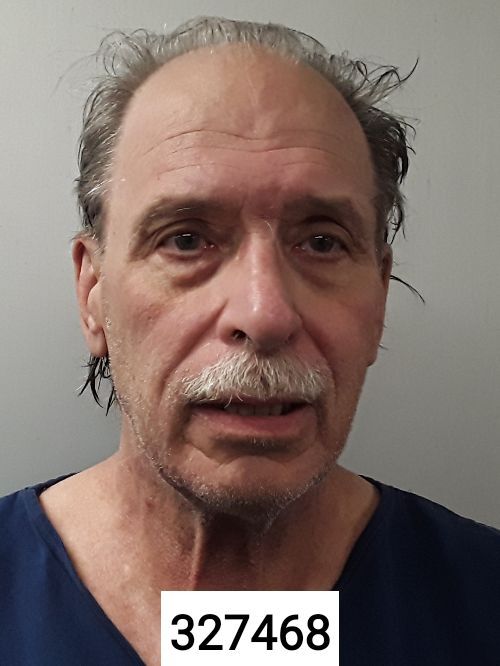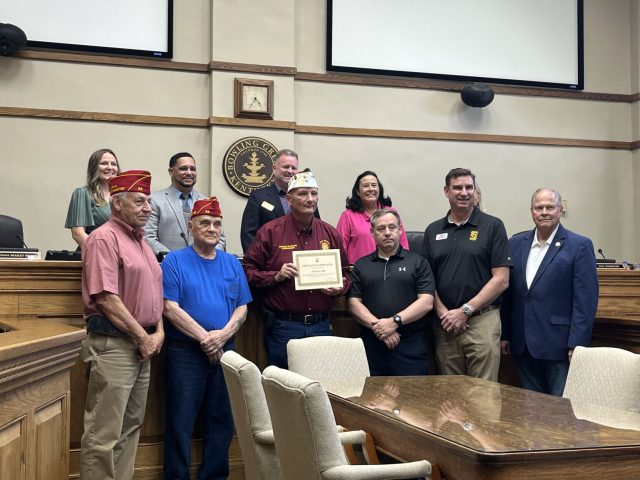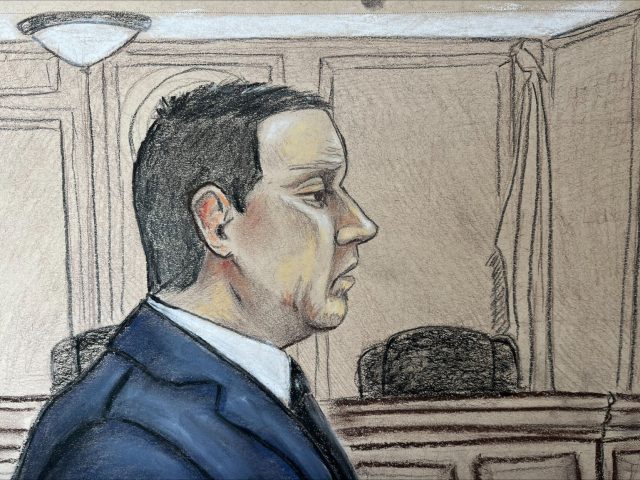Sentencing ahead for Simpson man whose rape conviction was overturned
Published 6:00 am Tuesday, April 15, 2025

- John Ellis
Almost a year after his conviction and 50-year prison sentence were reversed by the Kentucky Supreme Court, a Simpson County man charged in a sexual assault will be sentenced again after entering a guilty plea.
The sentencing for John Ellis, 69, of Franklin, had been scheduled to take place on Tuesday, but was postponed, with a new sentencing date to be determined.
Ellis pleaded guilty in December in Simpson Circuit Court to charges of first-degree rape, kidnapping and second-degree burglary.
Trending
A jury had previously convicted Ellis on those charges in 2023 and recommended he spend 50 years in prison, but the conviction was overturned on appeal by the Kentucky Supreme Court, which found that incriminating statements Ellis made about the case to his girlfriend while in police custody were said after he had asserted his right to a lawyer, and should not have been admitted into evidence at trial.
The case was remanded back to Simpson Circuit Court in June following the state supreme court’s decision, and a guilty plea was entered after the case went into mediation, Simpson County Commonwealth’s Attorney Mike Lindsey said.
Court records filed online indicate that Ellis entered into a plea agreement recommending a 12-year prison sentence.
Lindsey said the sentencing had been scheduled to go forward on Tuesday, but flooded roads prevented Special Judge Rodney Burgess, who presides over the case, from accessing court facilities that day in Shepherdsville, where he is based.
“The sentencing will be rescheduled,” Lindsey said. “We don’t have a date just yet, but I anticipate we’ll have one in the next couple of days.”
The case against Ellis was investigated by Kentucky State Police and concerned allegations brought in 2021 by a then-80-year-old woman, who reported that an intruder entered her home, attempted to place her in handcuffs and sexually assaulted her.
Trending
Ellis was reported missing two days after the incident, but he returned home shortly after the report was made.
Court records indicate that the victim was related to Ellis’ girlfriend.
Ellis and his girlfriend traveled to KSP Post 3 in Bowling Green, where detectives questioned Ellis.
At some point during the interview, Ellis asked whether he needed to get a lawyer, and the late KSP Detective Jonathan Johnson, ended the interview, left the room and returned with Ellis’ girlfriend.
With Ellis’ girlfriend in the room, Johnson mentioned that police found Ellis’ DNA at the crime scene, which was not true, and suggested that Ellis had committed other assaults.
While the case was pending, Johnson testified at a hearing that he mentioned those things in an effort to elicit a response from Ellis’ girlfriend and persuade her to question Ellis herself, according to records.
Ellis’ girlfriend asked him “John, surely you didn’t?”, to which Ellis replied with a denial of remembering a sexual assault or even going to the woman’s home.
The conversation between Ellis and his girlfriend continued, with Ellis saying he remembered drinking and “maybe (he) had too much.”
Johnson eventually left the interview room and the conversation continued between Ellis and his girlfriend, during which Ellis maintained that he didn’t remember committing any sexual assault but later said he left the area because he was scared.
Ellis’ girlfriend asked him whether he “just got drunk, that you just went crazy and did this” and Ellis said he thinks he did, and later said he got drunk in response to a question from his girlfriend asking him why he broke into the house, records show.
Johnson then came back into the interview room, advised Ellis of his rights and arrested him.
Before his trial, Ellis’ defense team sought to have the police interview suppressed, but a Simpson Circuit Court ruling allowed the jury to hear statements Ellis made to his girlfriend while the two were alone, while suppressing the statements he made to her when Johnson was in the room with the couple.
In reversing the conviction by a 4-2 decision, the state supreme court found that Ellis’ statements that were improperly admitted as evidence substantially contributed to the jury’s decision to convict him.






